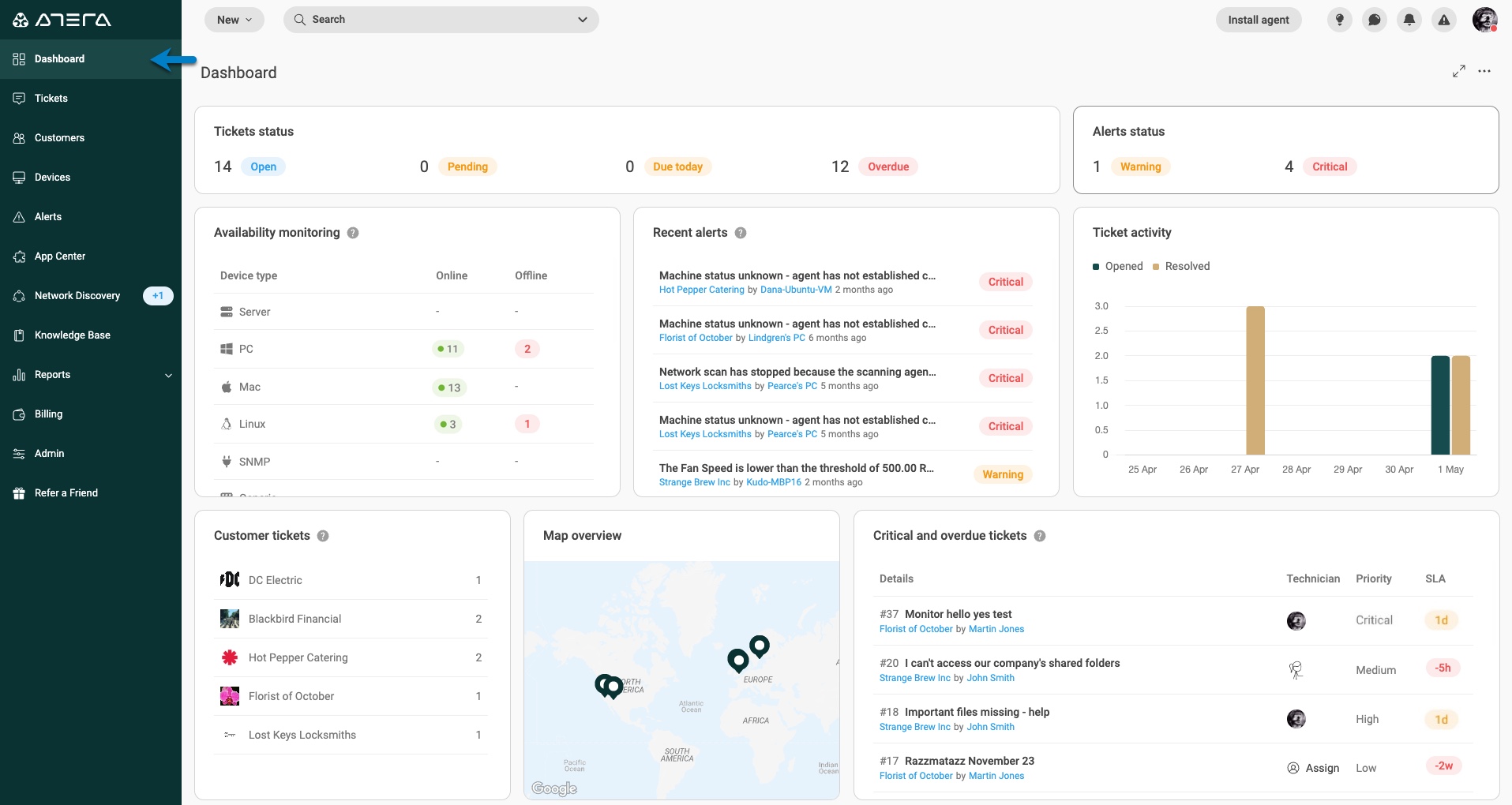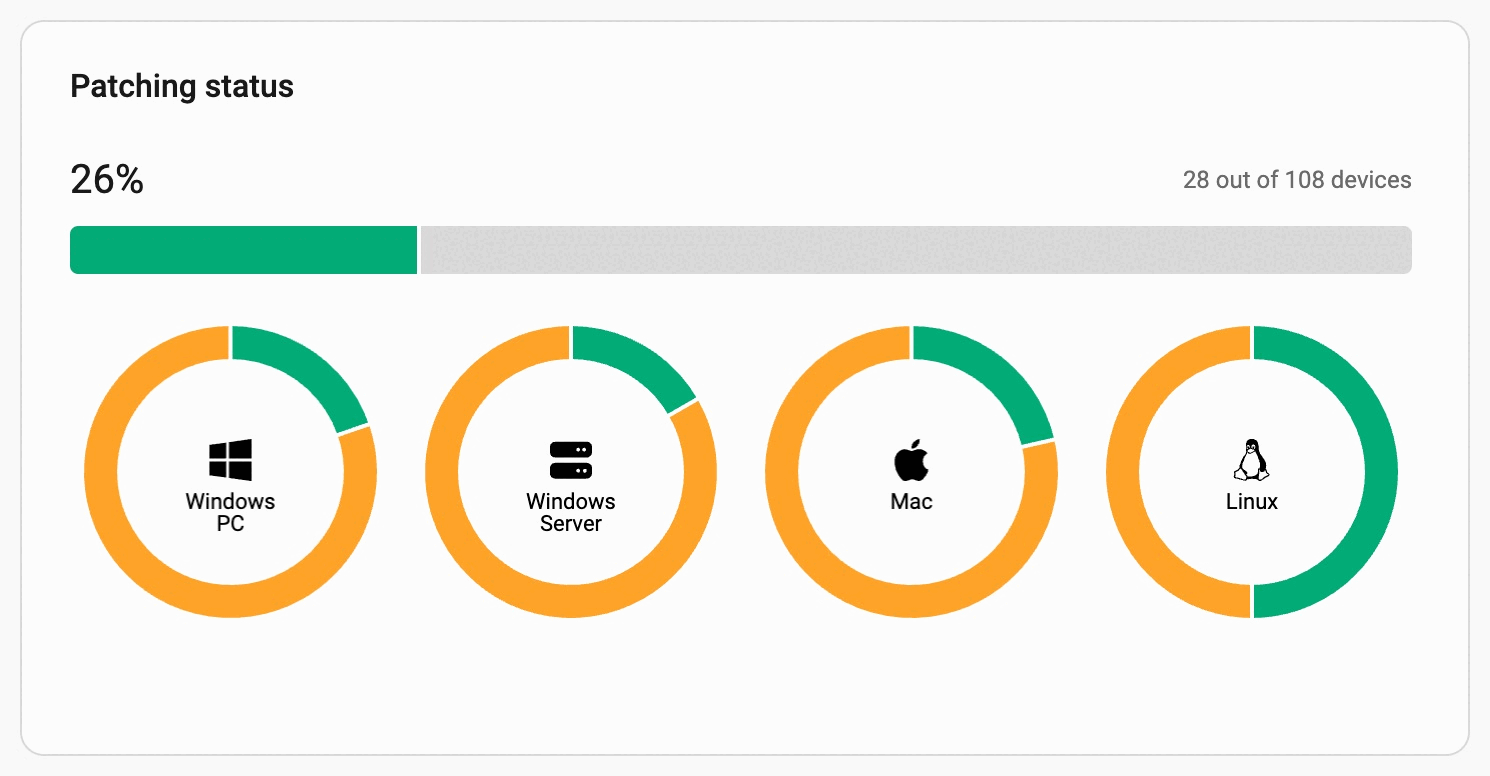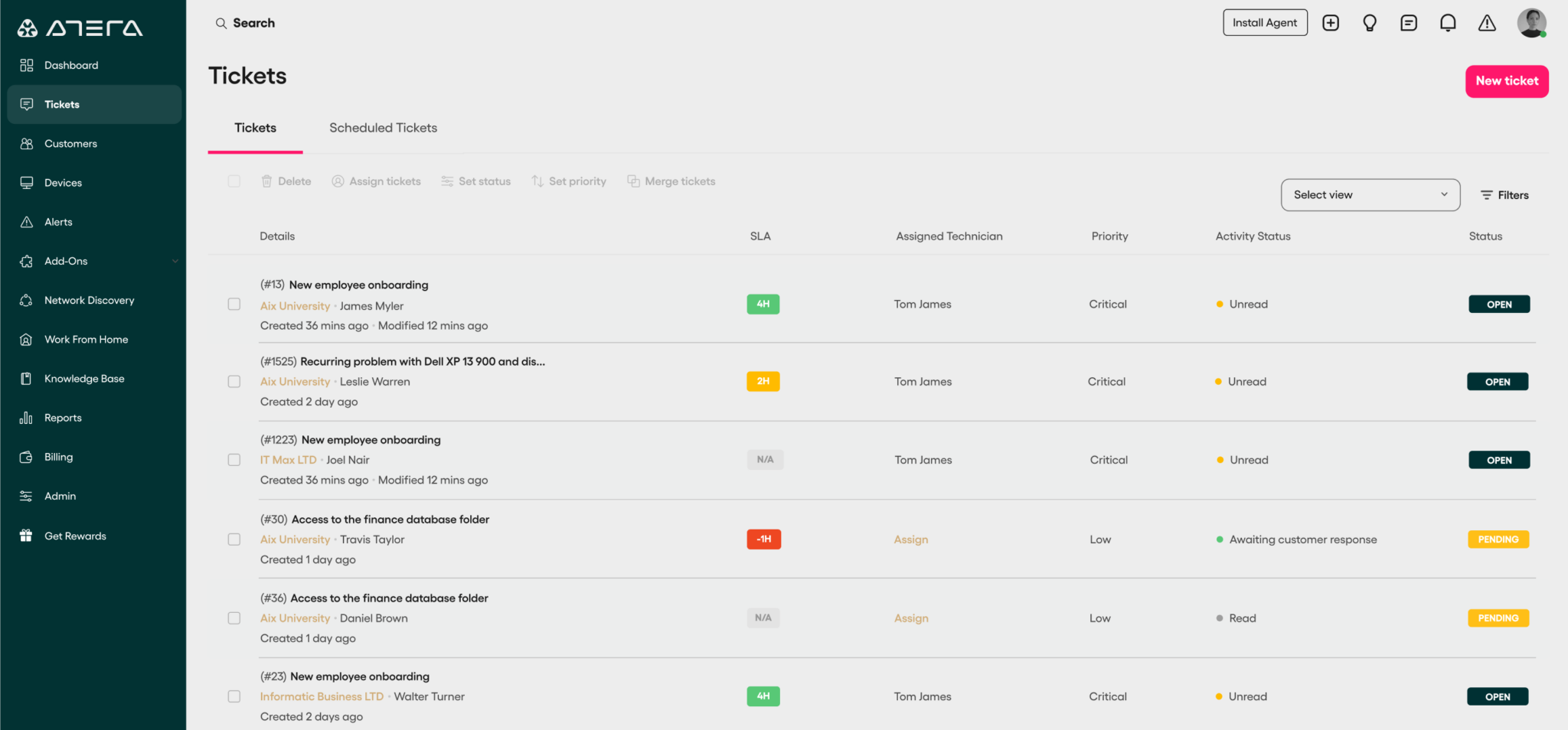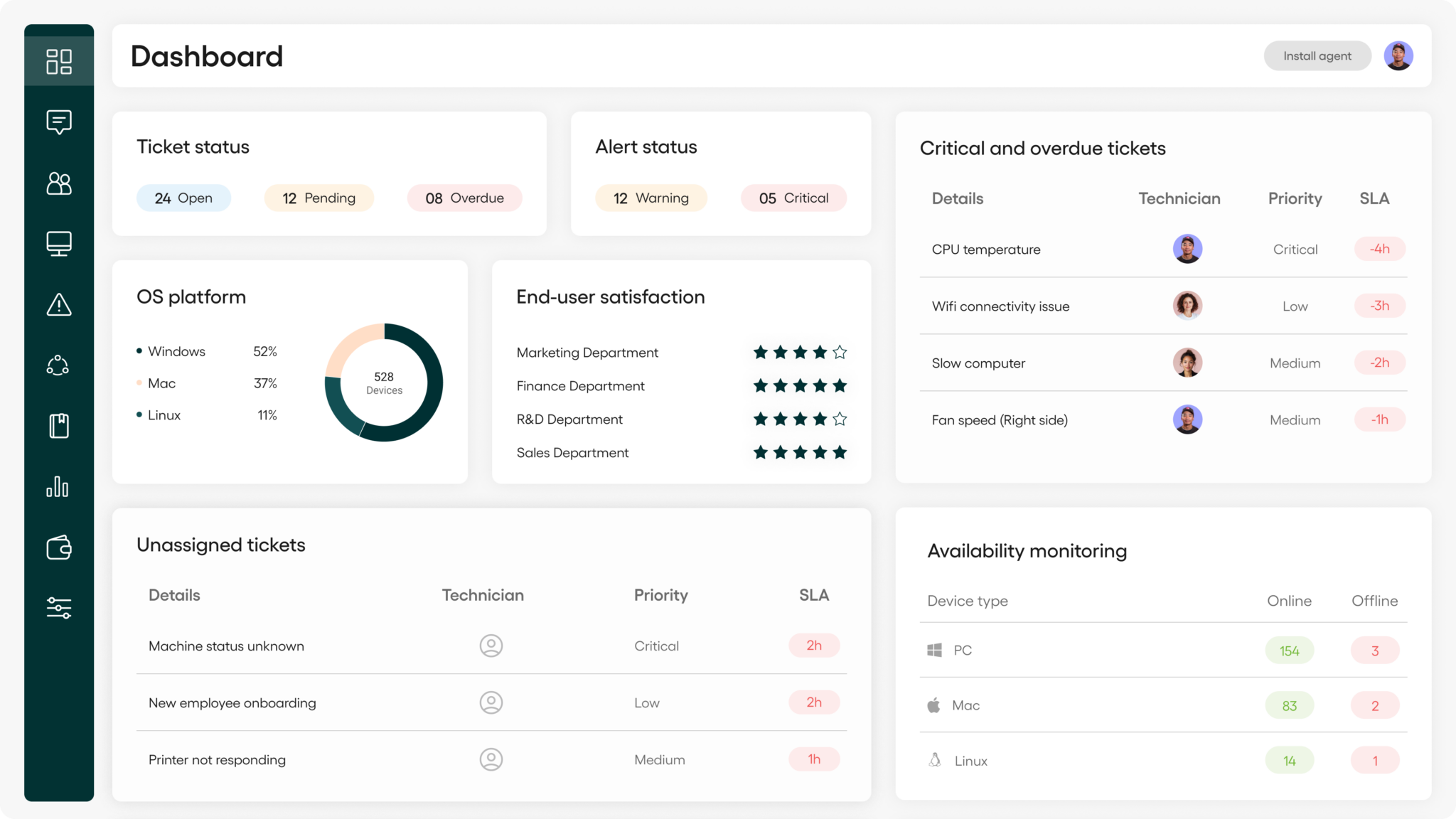Atera RMM Monitoring:
Streamlining Remote IT Management
Simulated Endpoint Onboarding and Remote Management
The first step was simulating endpoint onboarding by installing the Atera agent on several lab machines. Once connected, these devices appeared in the centralized dashboard, ready for monitoring and management.

From the console, I tested remote access features such as remote desktop control, file transfers, and command line execution. This streamlined device management without requiring physical access.
Creating Custom Alerts, Automated Patching, and Script Deployment
Atera’s automation capabilities were explored by configuring custom alerts for critical events such as CPU overutilization, low disk space, and failed service checks.
Next, I created automated patching tasks to ensure lab machines received timely OS and application updates. Policies were set to run outside of business hours to minimize disruptions.

Finally, I deployed PowerShell scripts remotely to perform bulk tasks such as clearing temp files and adjusting security settings. Script deployment proved efficient for scaling routine IT tasks across multiple devices.

Practicing Helpdesk Ticket Flows and Performance Monitoring
To simulate IT support, I created helpdesk tickets within Atera’s ticketing system. Tickets were categorized by priority and issue type, then assigned to technicians for resolution.
I practiced logging resolution steps and updating end-user communication within tickets, providing a realistic IT helpdesk workflow.

Performance monitoring tools tracked CPU, memory, and disk usage in real-time. Reports provided historical trends, helping to identify bottlenecks and plan proactive maintenance.

Conclusion
The Atera RMM Monitoring lab demonstrated how IT teams can centralize remote management, automate repetitive tasks, and streamline helpdesk support. Endpoint onboarding, patch automation, and ticketing workflows provided practical hands-on experience with cloud-based IT management.
This lab showed the value of RMM platforms in reducing manual overhead while improving service delivery and endpoint security.